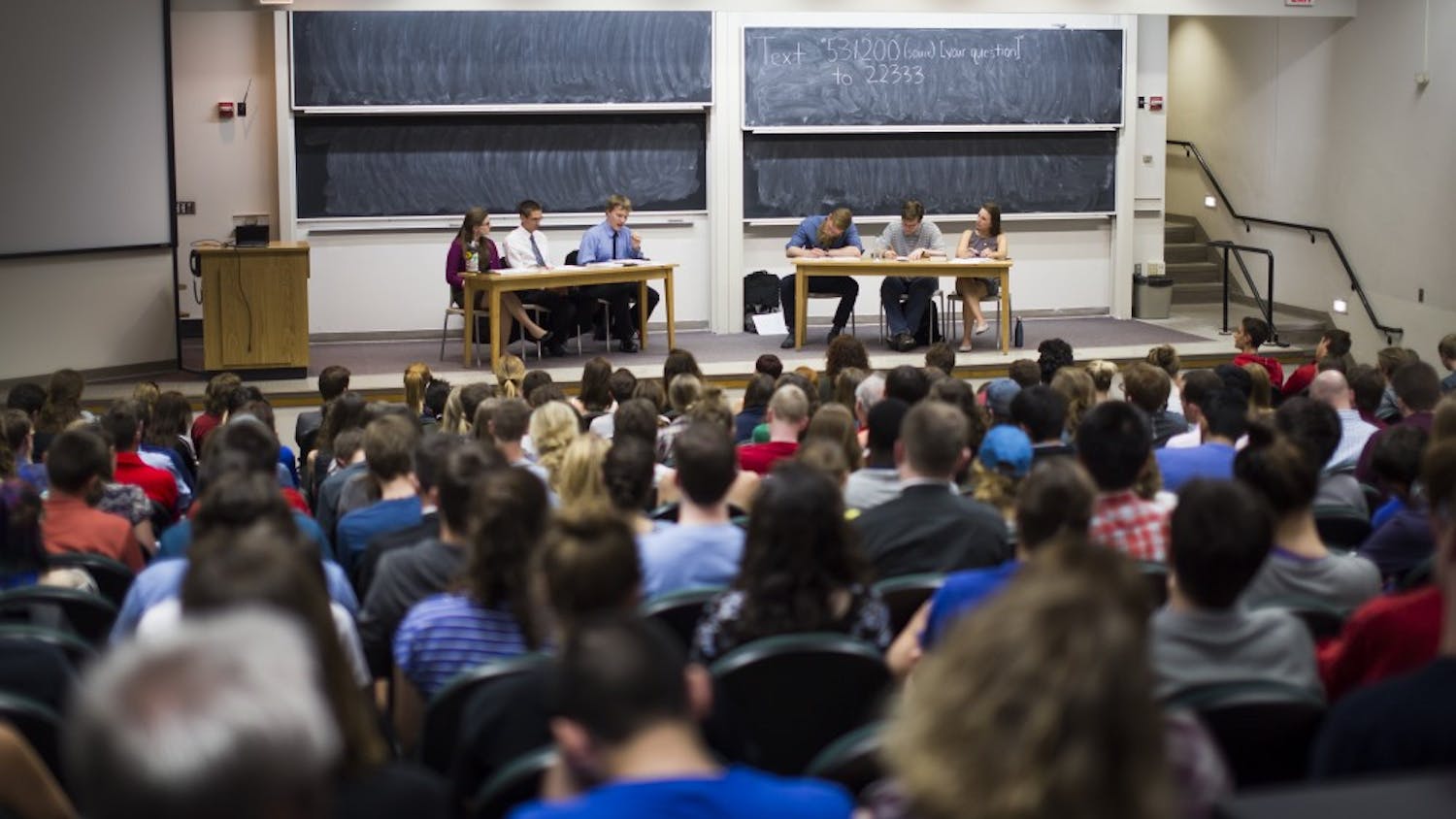Harvard president Lawrence H. Summers ignited a controversy in January when he suggested that innate differences between men and women explain why women are underrepresented in science and engineering at top universities. His comments prompted swift responses from researchers and educators who attribute the difference more to external factors than to physiological causes.
Summers claimed women have less motivation to work an 80-hour work week, lack \aptitude at the high end"" and have different socialization and patterns of discrimination compared to men. Summers delivered his comments at an economics conference focused on diversifying the science and engineering workforce. He has since admitted his comments were ""all wrong"" and that he made them merely to provoke intellectual debate.
Scholars point out his lack of knowledge of a vast field of research arguing that environment and discrimination, not innate ability, play a much larger role in women's aptitude to succeed.
No one disputes that physiological differences exist. The male brain is 10 percent larger on average than the female brain, but the female brain contains more gray matter, which is responsible for information processing. In addition, the male brain has more white matter, which contributes to spatial and geometrical ability.
The question is whether these physiological differences in size and processing ability can account for the gender disparity in upper-level academic positions in math and science.
""Depending on where we look and what we look for, there can be neuroanatomical and neurophysiological differences in male and female brains,"" said Mary Behan, UW-Madison professor of comparative biosciences in the School of Veterinary Medicine. ""That is not to say those differences makes one better or worse, it just depends on what the challenge is.""
Behan, who studies sex differences in regions of the brains controlling breathing, points to her research that indicates female rats do better in the face of adversity and that male rats are less able to adjust due to different hormonal functions.
""There is a linear relationship between brain size and body size, but that is not to say that bigger is better. The elephant brain, for example, is much larger than ours and an elephant is not doing complex problem solving. Size is just one metric,"" Behan said.
Janet Hyde, a UW-Madison professor of psychology and women's studies who has studied gender extensively, has found little or no gender difference in math scores. Her conclusion is based on her meta-analysis of over 100 studies examining gender differences in state assessment math tests from grade school up to high school.
""I would look to factors other than innate ability such as stereotypes that males are better in math and science,"" Hyde said. ""Once you have stereotypes, girls may not think of it as a possibility to go on in that field.""
Instead, capable girls may end up pursuing different careers. Hyde suggested the lack of women in upper level math and science positions ""may point to other factors, such as either overt or subtle discrimination for women.""
Margaret Meyer, a researcher for the Wisconsin Center for Education Research in math education, believes the gender disparity in high-level math and science jobs reflects an environment in which women do not feel encouraged or comfortable.
""I believe women make choices;"" Meyer said. ""Although women are admitted to a program, the programs aren't always welcoming to women.""





